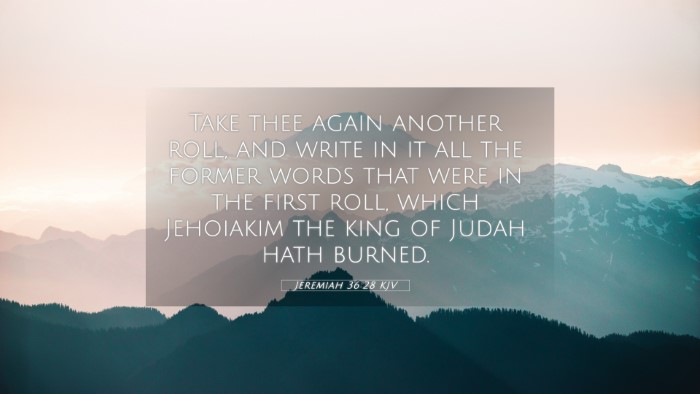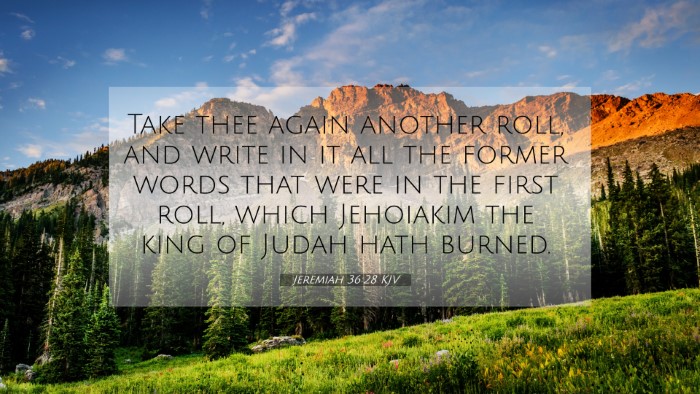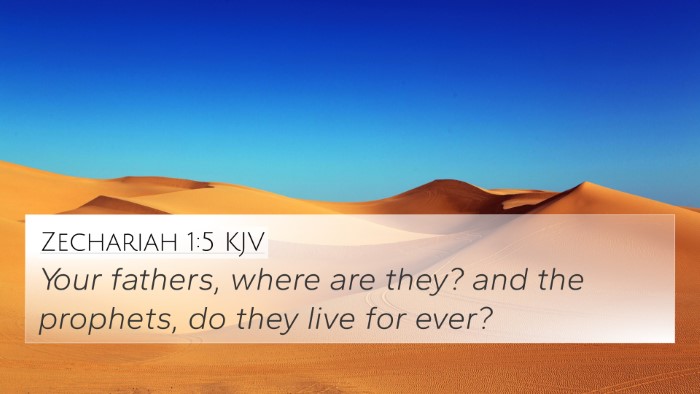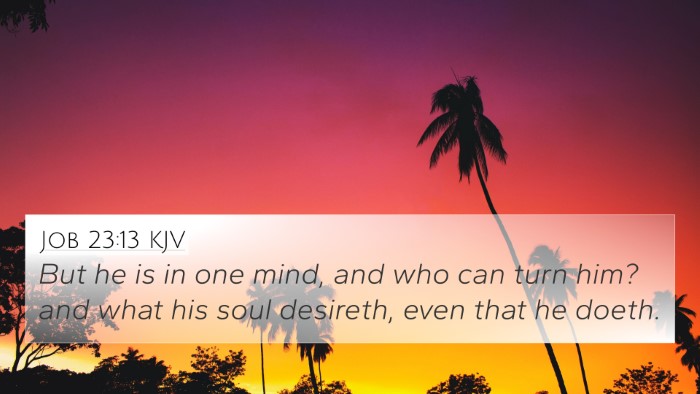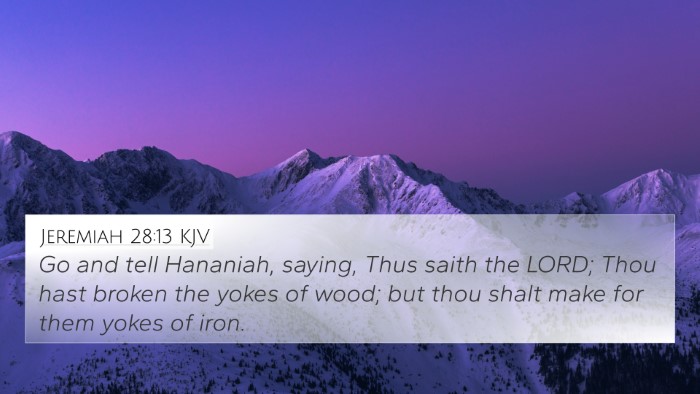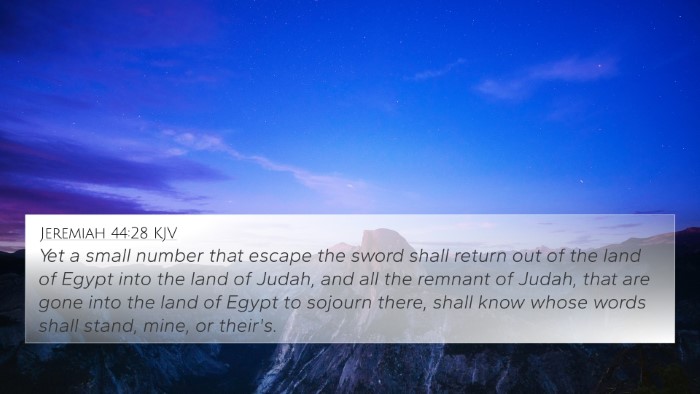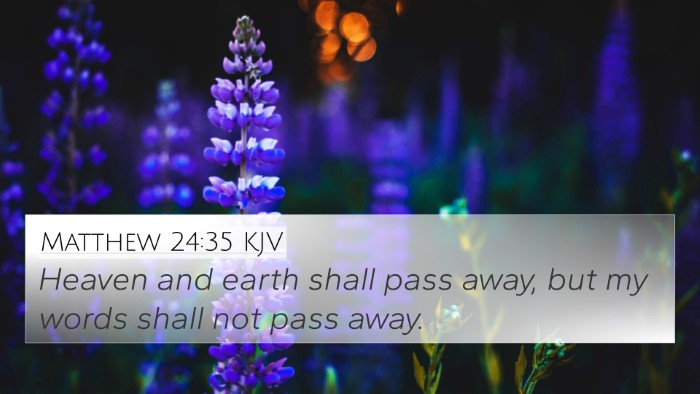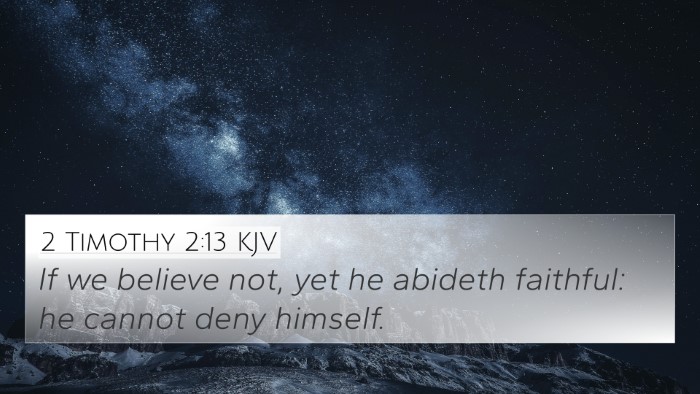Understanding Jeremiah 36:28
Jeremiah 36:28 states: "Take yet another roll, and write in it all the former words that were in the first roll, which Jehoiakim, the king of Judah, hath burned:" This verse serves as a profound reminder of God's commitment to His Word and the urgency of relaying the messages He gives to His prophets. In this context, we find deep theological and historical implications that reveal the relentless nature of divine revelation and the consequences of rejecting it.
Summary and Interpretation
This verse encapsulates a pivotal moment in Jeremiah's ministry when King Jehoiakim burned the initial scroll containing God's words delivered through the prophet. It emphasizes the significance of God's message being preserved despite human attempts to eradicate it. The act of rewriting the words heralds the unyielding power of God’s prophecy and its intended purpose.
Insights from Commentaries
- Matthew Henry's Commentary: Henry notes that God's determination to ensure His Word is recorded demonstrates His authority and sovereignty. Even when kings oppose it, God’s purpose prevails, affirming that true prophecy cannot be silenced.
- Albert Barnes' Notes: Barnes emphasizes the futility of Jehoiakim's actions, asserting that attempts to destroy God’s message only lead to further dissemination. He observes that God's words cannot be destroyed; they are eternal and will be fulfilled regardless of human intervention.
- Adam Clarke's Commentary: Clarke reflects on the importance of obedience in communicating God's messages. He suggests that Jeremiah’s task of rewriting the scroll underscores both the seriousness of divine instruction and the need for continued faithfulness in proclaiming God's truth.
Cross-References
This verse has numerous cross-references that enrich its meaning, including:
- Isaiah 55:10-11: Reinforces the idea that God's word will achieve its purpose and not return void.
- Jeremiah 1:9: God touches Jeremiah's mouth, symbolizing divine authority in speaking His words.
- 2 Timothy 3:16: Highlights that all Scripture is God-breathed and valuable for teaching and reproof.
- Matthew 24:35: Jesus affirms that heaven and earth will pass away, but His words will not pass away.
- Revelation 22:19: Warns against altering the words of the prophecy, indicating the sanctity of God’s Word.
- Hebrews 4:12: Describes the Word of God as alive and powerful, sharper than any two-edged sword.
- Psalms 119:89: Proclaims that God's Word is forever settled in heaven, indicating its eternal truth.
Thematic Connections
The themes in Jeremiah 36:28 connect to broader Biblical narratives that reflect on:
- God's Sovereignty: The eternal nature of His Word regardless of human actions.
- The Recalcitrance of Leadership: Jehoiakim's rejection of God's Word speaks to the dangers of pride and rebellion.
- Clarity in Prophetic Duty: The necessity for prophets to remain faithful in delivering God's messages.
Using Cross-References Effectively
Understanding the connections between Bible verses is vital for a deeper comprehension of Scripture. By utilizing tools like a Bible concordance or Bible cross-reference guide, readers can:
- Identify connections: Find how different verses relate to themes of faith, prophecy, and God's character.
- Explore inter-Biblical dialogue: See how Old Testament and New Testament scriptures illuminate each other.
- Conduct comparative studies: Analyze how different authors address similar themes, e.g., prophets vs. apostles.
Conclusion
Jeremiah 36:28 illustrates a crucial moment in God’s redemptive plan, showcasing the resilience of His Word despite human opposition. By examining this verse and its connections to the entirety of Scripture, we gain insights into the nature of divine communication and the unyielding authority of God. We encourage readers to engage with the cross-referencing Bible study methods to enrich their understanding and to discover the intricate web of relationships present in Biblical texts.

